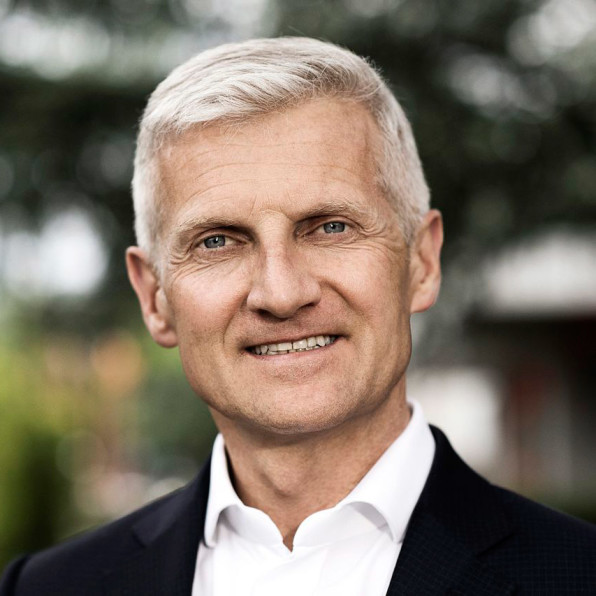An Italian Coffee Giant On The Future Of Sustainability
Illy is perhaps one of the most recognized coffee businesses in the world. The Italian roaster has become synonymous with European espresso. It’s been family-run since 1933 and has transformed into one of the biggest global coffee roasting companies. Founded by Francesco Illy, who invented what the company claims is the first “modern espresso machine,” Illy now brings in hundreds of millions of dollars every year and is featured in thousands of cafés worldwide. Francesco’s grandson Andrea Illy currently runs the company, and he has some lofty views on the future of business.

Illy works with dozens of coffee-producing countries and emphasizes that sustainability is its utmost value. Many coffee companies participate in the fair trade system of crop transacting, where certain certified growers participate and are promised a baseline wage that theoretically doesn’t shortchange the farmers. But Illy uses a direct system where it cultivates its own relationships with coffee producers. This, Illy says, makes for better quality product as well as a better quality of life for those it employs. The company claims that its coffee growers receive on average, a 30% wage premium for working with Illy as compared to other fair trade systems.
I recently sat down with Andrea Illy and talked about his views on sustainability, the future of the coffee market, and what’s next for the industry. Our conversation has been edited for length and clarity.
Can you explain how your system with growers differs from the overall fair trade system?
Fair Trade is based not on sustainability but solidarity. Which means that you pay an extra price on top of the official market price in order to make sure that there is enough margin. It’s a purely purely philanthropic goal–like giving money to an NGO, which then takes care of the social needs of those populations. The consumer doesn’t necessarily get higher quality in exchange of this premium price.
Illy believes that there is kind of a distortion of the offer and the demand. You have a price which is directly correlated to the value. If you distort the sell-value relationship then it doesn’t work economically. It’s a shaky model because now there is an excess of certified coffee compared to the consumption.
The other aspect that we didn’t accept of this system was that the grower has to pay to be certified. They are the weakest ring of the long value chain. How can you ask the people who make an average of a few hundred or a few thousand dollars per year to pay maybe hundreds of thousands of dollars to be certified? We are responsible for this fairness and sustainability of the produce that we give to the consumer because the brand is ours.
We take responsibility for our suppliers, because quality and sustainability are two different sides of the same coin. There is no quality without sustainability and vice versa. This is not about green washing. It is absolutely about strategy.
What will it take for the coffee industry to be truly sustainable?
There’s still a long way to go before to make this industry really sustainable. Climate change is impacting coffee agriculture significantly. We did a study with Columbia University’s Earth Institute. It found that up to 50% of the currently suitable land might not be suitable any longer by 2050. And by 2050 the demand will have increased to the point that we’ll need to produce twice as much coffee as we do now.
What we need to do in order to avoid the price shock and the big social problems with those communities producing coffee are three things. One, change the economic practices. Two, develop more cultivars resistant to the effects of climate change. Three, migrate plantations with higher latitudes and higher altitudes.
Combined, this is a really challenging problem. Thirty years is nothing. Coffee is a perennial crop that needs four years for the plant to become fully productive and the average life of one coffee plant is 30 years. That means that we need to renew, in one cycle, most of the coffee plantations.
In order to accelerate this program we would need three core activities: The first is fundraising. We definitely need more money than there is now in the sector to address this challenge. The second core activity is knowledge transfer. We need cutting-edge science and technology. This means immediately addressing the problem of water management, irrigation, etc. And then, third, coordination.
Why should companies be focusing on sustainability?
Because the markets are so complex there is no way that any company can do something on its own. Collaboration is needed. Without the help of others you can’t reach your own goals.
If we want to change the society we need to change now because (the ways things are set up) is systemically unsustainable. Businesses creates society, so to change society, we need to change the private sectors.
You think coffee can lead us there?
My dream is that one day coffee will become the official beverage of happiness. And if you cannot be happy if you are not sustainable. But the ultimate goal of sustainability is reaching happiness. So coffee is very much about that. It’s about well-being, pleasure, health, socialization.
And there’s an interplay with being the industry of happiness and creating a positive economy?
Oh, yes, absolutely. Think about the consumer response and how they behave. Competition usually follows trends. If you are successful in starting a trend with this idea of happiness, many others will follow. Eventually we’ll have corporations shift away from being indifferent to issues like sustainability.
This is exactly what I think is necessary. Sustainability also became a fad. Everybody speaks about sustainability now. In 10 years, they will not speak about sustainability any longer. They will speak about something else. What do you have after sustainability? You have happiness.
Fast Company , Read Full Story
(58)














